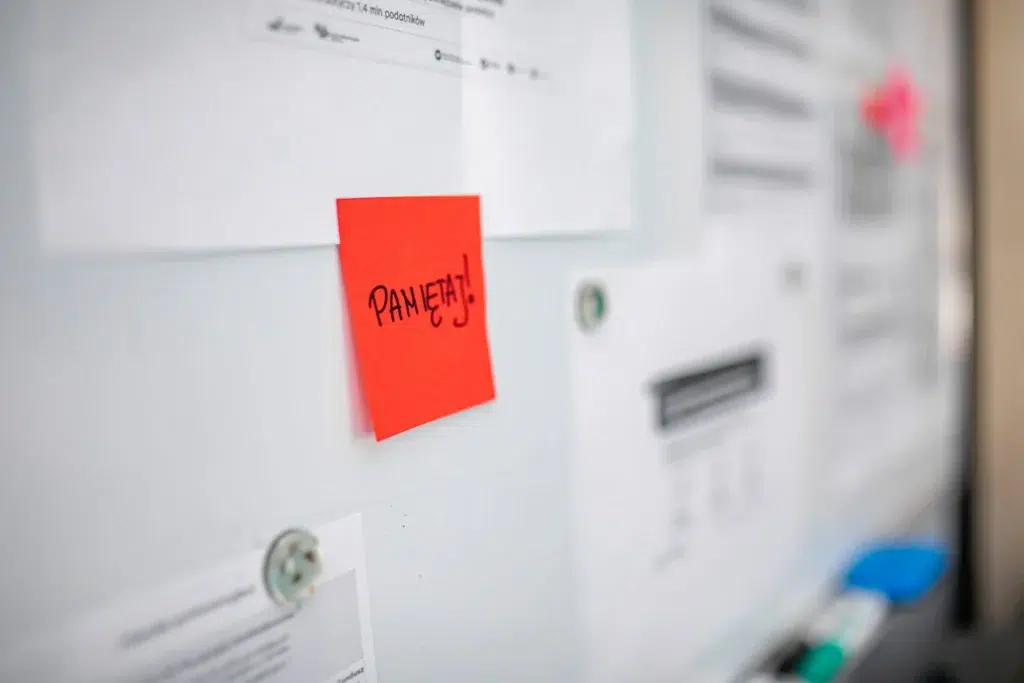
Transakcje wewnątrzwspólnotowe – najważniejsze obowiązki przedsiębiorcy
Transakcje między przedsiębiorstwami działającymi w krajach członkowskich Unii Europejskiej objęte są specjalnymi procedurami związanymi przede wszystkim z rozliczeniem podatku VAT. Warto podkreślić, że w tym zakresie prawodawca przewidział odrębny zespół obowiązków w zakresie wewnątrzwspólnotowego nabycia towarów (WNT) oraz usług.
Wewnątrzwspólnotowe nabycie towarów – najważniejsze obowiązki
WNT polega na przeniesieniu prawa do rozporządzania jako właściciel towarem, który jest przewożony z państwa członkowskiego do Polski.
Mechanizm opodatkowania bazuje na zasadzie odwrotnego obciążenia (reverse chargé), a więc rozliczenia podatku należnego, który staje się zarazem podatkiem naliczonym podlegającym odliczeniu na zasadach ogólnych. Opodatkowanie ma miejsce w kraju nabywcy, przez co podatnik dokonujący nabycia zobowiązany jest do ustalenia oraz naliczenia podatku zgodnie z polskim prawem. Za podstawę opodatkowania uważa się natomiast kwotę, którą nabywca ma zapłacić sprzedawcy, mogą do niej zostać zaliczone również inne podatki, cła i opłaty.
Należy podkreślić, że obowiązek podatkowy ustalany jest – co do zasady – na podstawie daty wystawienia faktury, co powinno nastąpić do 15 dnia miesiąca następującego po miesiącu dokonania dostawy. Istotne w tym zakresie staja się też zmiany wprowadzone pakietem Slim VAT 3, w ramach którego brak faktury nie eliminuje możliwości odliczenia podatku VAT od nabycia wewnątrzwspólnotowego. Trzeba bowiem wspomnieć, iż do końca czerwca 2023 r. przepisy zakładały, że podatek można odliczyć dopiero, gdy otrzymamy fakturę od dostawcy.
Warto też wiedzieć, że w przypadku transakcji WNT przedsiębiorca ma obowiązek zarejestrować się do VAT-UE, poprzez złożenie w Urzędzie Skarbowym deklaracji VAT-R. Kontrahentów zarejestrowanych do unijnego VAT można weryfikować na platformie internetowej VIES.
Od reguły rejestracji wprowadzony został jednak wyjątek, obejmujący podatników zwolnionych z VAT. W przypadku bowiem, gdy tego typu podmiot nabył towary o wartości nieprzekraczającej 50 000 złotych w skali roku, to może rozliczyć je jak zwykłą, krajową transakcję. Obowiązek rejestracji do VAT-UE następuje po przekroczeniu wspomnianego limitu i wówczas podatnik zobowiązany jest do składania deklaracji VAT-8 oraz deklaracji podsumowującej VAT-UE. Trzeba tym samym zaznaczyć, że wspomniany limit zwolnienia jest dobrowolny i podatnik może z niego zrezygnować, składając odpowiednio wypełniony formularz VAT-R do Urzędu Skarbowego.
Wewnątrzwspólnotowe nabycie usług – co podatnik powinien wiedzieć?
Swoboda przepływu towarów stanowiła jedno z podstawowych założeń integracji europejskiej, jednak znacznie większym wyzwaniem okazało się uregulowanie świadczenia usług. Wiązało się to przede wszystkim z wieloma modelami świadczenia tego typu transakcji, przez co do dzisiaj można w tym zakresie spotkać szereg wyjątków od reguły.
Przedmiot ten reguluje art. 28b ustawy o podatku od towarów i usług, zgodnie z którym miejscem świadczenia zarówno krajowych jak i zagranicznych usług w przypadku:
- świadczenia usług na rzecz podatnika – jest miejsce w którym podatnik będący usługobiorcom posiada siedzibę;
- gdy usługi świadczone są dla stałego miejsca prowadzenia działalności gospodarczej podatnika, które znajduje się w innym miejscu niż jego siedziba – za miejsce świadczenia uznaje się stałe miejsce prowadzenia działalności gospodarczej;
- gdy usługobiorca nie posiada siedziby lub stałego miejsca prowadzenia działalności gospodarczej, miejscem świadczenia usług będzie miejsce, w którym posiada on stałe miejsce zamieszkania bądź pobytu.
Należy też podkreślić, że nabywca usług w wymiarze wewnątrzwspólnotowym zobowiązany jest do rejestracji w VAT-UE. Taką sytuację trzeba też odnieść do podatników zwolnionych, którzy również powinni dokonać takiej rejestracji, zachowując tym samym prawo do zwolnienia.
Ważną kwestią jest obowiązek deklaracyjny związany z nabyciem usług wewnątrzwspólnotowych. W przypadku podatników czynnych – w zakresie transakcji określonych w art. 18b ustawy o podatku od towarów i usług – nie muszą składać informacji podsumowującej VAT-UE
Nieco inaczej wygląda to w przypadku podatników zwolnionych z VAT. Zobowiązani są oni bowiem do złożenia deklaracji VAT-9M, w ramach której wykazują oni podatek naliczony, który następnie odprowadzają do Urzędu Skarbowego. Ze względu na brak prawa do odliczenia – mogą zaliczyć go w koszty uzyskania przychodu.
Sprzedaż towarów i usług do państw UE
Kolejną kwestią staje się sprzedaż towarów i usług do państw Unii Europejskiej. W przypadku wewnątrzwspólnotowej dostawy towarów podatnik może opodatkować towary stawką 0%, jednak przy spełnieniu kryterium, jakim jest udokumentowanie wyjazdu towaru poza granicę kraju. W takiej sytuacji odbiorca – podatnik VAT – będzie w stanie naliczać i odliczyć podatek VAT w kraju docelowym, na zasadach analogicznych jak przy WNT.
Nieco inaczej wygląda to w przypadku, gdy sprzedaż do innych państw UE realizowana jest na rzecz klientów detalicznych. Do limitu 10 000 euro dostawca może opodatkowywać sprzedaż towarów na zasadach ogólnych, według stawki VAT obowiązującej w jego kraju. Następnie powinien on opodatkowywać sprzedaż według stawki właściwej dla kraju do którego prowadzona, a wcześniej zarejestrować się jako podatnik VAT w danym państwie członkowskim, bądź skorzystać z procedury VAT-OSS. Ta druga opcja pozwala podatnikowi rozliczać się z Urzędem Skarbowym na podstawie jednej deklaracji rozliczeniowej, składanej w języku polskim.
Nieco bardziej skomplikowaną kwestią może okazać się dostawa usług. W tym przypadku znaczenie ma bowiem opisane powyżej miejsce świadczenia. Generalna zasada zakłada jednak regułę odwrotnego obciążenia w ramach której nabywca usługi rozlicza podatek VAT w swoim kraju. Warto jednak nadmienić, iż w tym zakresie przewidziano szereg wyjątków wśród których – zgodnie z art. 28e ustawy o podatku od towarów i usług – znajduje się m.in. świadczenie usług budowlanych, gdzie za miejsce świadczenia przyjmuje się miejsce położenia nieruchomości. W takim przypadku polski usługodawca wystawi fakturę na rzecz usługodawcy zagranicznego z adnotacją o odwrotnym obciążeniu, nie wskazując na niej wartości ani stawki podatku. To na usługobiorcy – o ile jest czynnym podatnikiem VAT zarejestrowanym w danym kraju – spoczywać będzie obowiązek rozliczenia takiego podatku.
Podsumowując, należy zatem podkreślić, iż transakcje wewnątrzwspólnotowe – pomimo dodatkowych obowiązków w zakresie rozliczenia podatku VAT – nie powinny stanowić przeszkody w rozwoju działalności gospodarczej. Przy ich realizacji warto jednak pamiętać o generalnej zasadzie rejestracji do VAT UE oraz mających do niej zastosowanie wyjątkach.


Dodaj komentarz